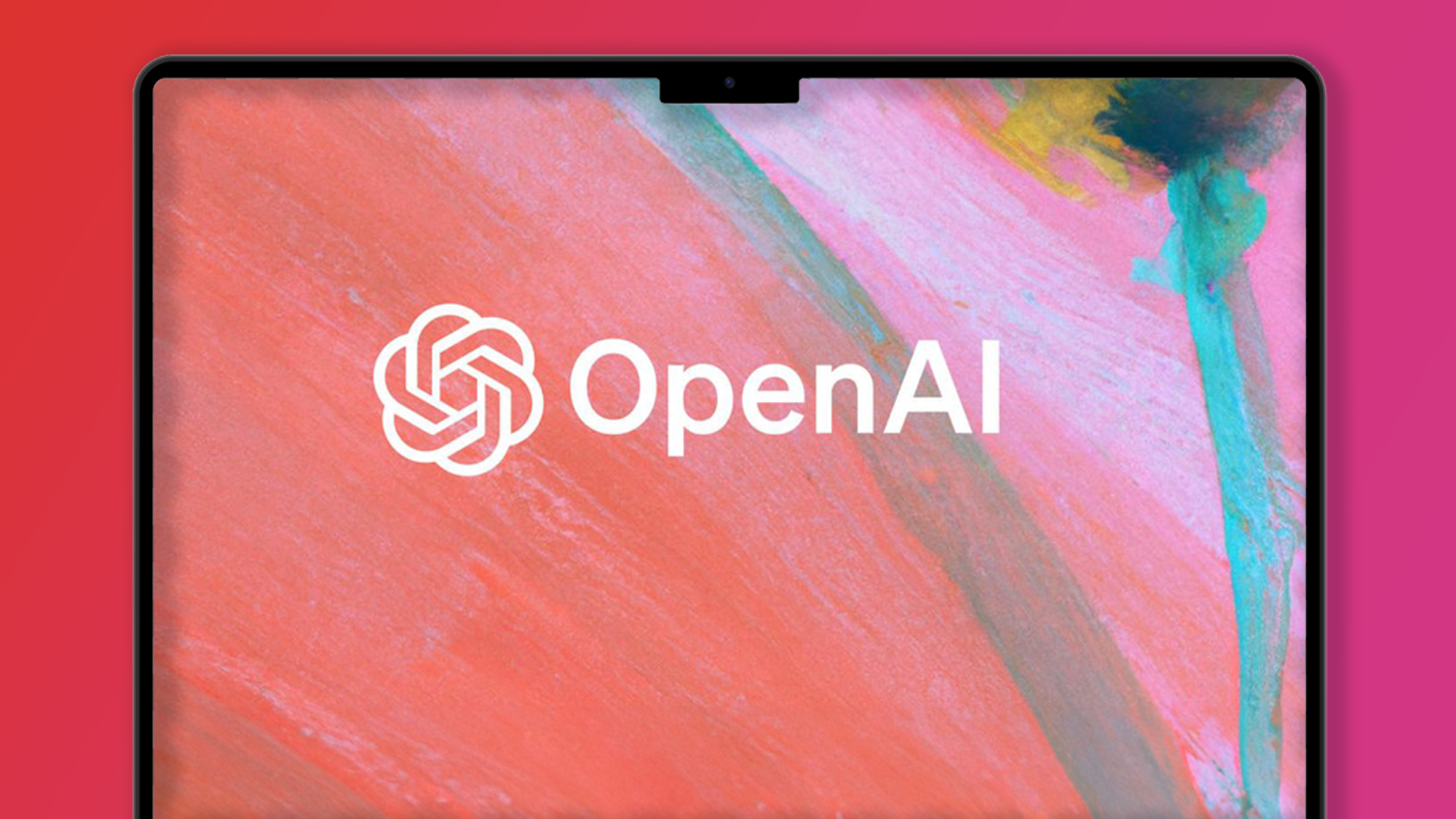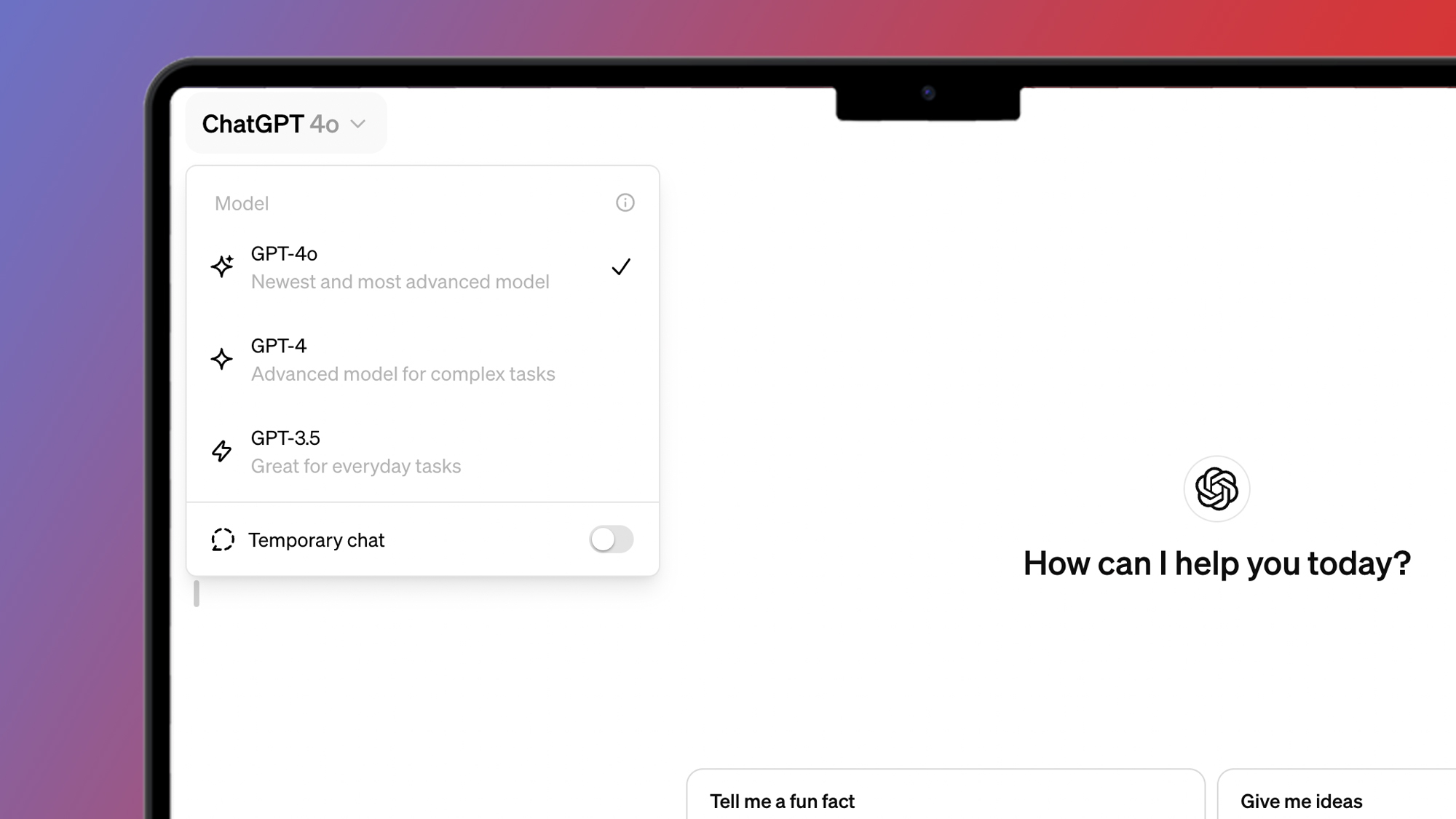ChatGPT’s big, free update with GPT-4o is rolling out now – here’s how to get it
But we'll sadly have to wait for the conversational voice tricks

ChatGPT has just got one its biggest updates so far, thanks to a series of new features – powered by a new GPT-4o model – that were announced at its 'Spring Update' event. And with comparisons to the virtual assistant in Spike Jonze's movie Her flying around, you're probably wondering when you can try it out – well, the answer is a little complicated.
The good news is that GPT-4o, a new multi-modal version of ChatGPT that can "reason across audio, vision, and text in real time" (as the company describes it), is rolling out right now to everyone, including free users. We've already got it in our ChatGPT Plus account, albeit only in limited form – for now, OpenAI has only released GPT-4o's text and image powers, with the cool voice and video-based features coming sometime later.
To find it, just log into your account in a web browser and check the drop-down menu in the top left-hand corner – if you have the update, it should default to GPT-4o with a label calling it OpenAI's "newest and most advanced model" (see below).
That's web access to the GPT-4o model sorted, but what about the ChatGPT apps for iOS, Android and now Mac? It seems that ChatGPT's newest model rolling out a little slower on those. We don't yet have access to GPT-4o on iOS or Android yet, and ChatGPT's new Mac app is still rolling out (and wasn't available at the time of writing).

OpenAI said on May 13 that it was "rolling out the macOS app to Plus users starting today" and that it would be made "more broadly available in the coming weeks". Strangely, Windows fans have been snubbed and left out of the ChatGPT desktop app party, but OpenAI says "we also plan to launch a Windows version later this year".
When do we get the new voice assistant?
The most impressive parts of OpenAI's GPT-4o demo were undoubtedly the real-time conversational speech and the vision-based tricks that allow the model to 'see' and chat simultaneously.
Unfortunately, it looks like we'll have to wait a little longer for those to get a wider rollout. OpenAI says that developers can "now access GPT-4o in the API as a text and vision model", which differs from the image-based capabilities of the version that was released to free and paid users starting yesterday.
Sign up for breaking news, reviews, opinion, top tech deals, and more.
And as for the voice tricks, OpenAI says it'll "roll out a new version of Voice Mode with GPT-4o in alpha within ChatGPT Plus in the coming weeks". And that "we plan to launch support for GPT-4o's new audio and video capabilities to a small group of trusted partners in the API in the coming weeks".
That's a little vague and means some of GPT-4o's coolest tricks are only coming to testers and developers among ChatGPT's paid users for now. But that's also understandable – the tech powering OpenAI's GPT-4o demos likely required some serious compute power, so a wider rollout could take time.
That's a little frustrating for those of us who have been itching to chat to the impossibly cheerful and smart assistant powered by GPT-4o in OpenAI's various demos. If you haven't watched them yet, we'd suggest checking out the various GPT-4o demo videos on OpenAI's site – which include two AI assistants singing to each other and ChatGPT helping someone prep for an interview.
But on the plus side, GPT-4o is surprisingly going to be available for both free and paid users – and while the full rollout of all the tricks that OpenAI previewed could take some time, the promise is certainly there. Now it's time to see how Google responds at Google I/O 2024 – here's how you can tune into the live event.
You might also like
- Six major ChatGPT updates OpenAI unveiled at its Spring Update – and why we can't stop talking about them
- OpenAI just gave artists access to Sora and proved the AI video tool is weirder and more powerful than we thought
- What is OpenAI's Sora? The text-to-video tool explained and when you might be able to use it

Mark is TechRadar's Senior news editor. Having worked in tech journalism for a ludicrous 17 years, Mark is now attempting to break the world record for the number of camera bags hoarded by one person. He was previously Cameras Editor at both TechRadar and Trusted Reviews, Acting editor on Stuff.tv, as well as Features editor and Reviews editor on Stuff magazine. As a freelancer, he's contributed to titles including The Sunday Times, FourFourTwo and Arena. And in a former life, he also won The Daily Telegraph's Young Sportswriter of the Year. But that was before he discovered the strange joys of getting up at 4am for a photo shoot in London's Square Mile.
